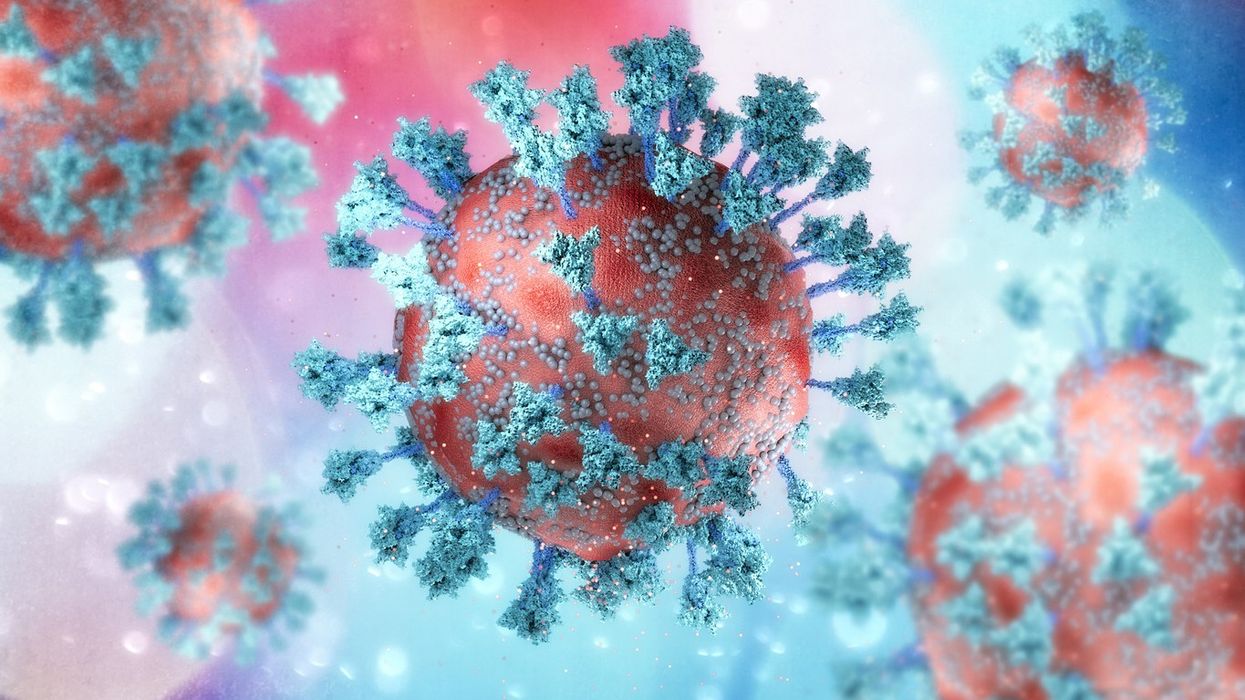Scientists have found that the fat around the liver, intestines and other organs, or visceral fat, contributes more towards severe COVID-19 than does subcutaneous fat, or fat under the skin as in "love handles", according to a study.
Visceral fat is usually considered a risk factor for cardiovascular disease, diabetes and high blood pressure.
The researchers at the State University of Campinas (UNICAMP) and the University of Sao Paulo (USP) also found that when visceral adipocytes, or tissues where fat is stored as an energy source, were infected, they produced a larger amount of pro-inflammatory cytokines, which warned the immune system of the existence of a threat to be combated.
To reach this conclusion, Marcelo Mori, a professor at UNICAMP and one of the leaders of the study, infected in the laboratory two types of adipocytes (fat cells): one obtained from human stem cells isolated from subcutaneous tissue and the other differentiated from stem cells taken from visceral fatty tissue.
"It was possible to observe that visceral adipocytes are more susceptible to infection by SARS-CoV-2. Viral load increased far more in this fat cell type than in subcutaneous adipocytes.
"We believe this was due mainly to higher levels of the protein ACE-2, to which the virus binds to invade cells, present on the cell surface," said Mori. The study is published in Nature Communications.
Mori's team at UNICAMP was the first in the world to show - in July 2020 - that SARS-CoV-2 can infect human fat cells and to suggest that adipose tissue serves as a reservoir for the virus, the study said.
"After that, other studies confirmed that adipocytes can indeed be infected, and when we analyzed samples from patients who died of COVID-19, we found the presence of the virus in adipose tissue to be relatively frequent, corresponding to about 50 per cent of cases," said Mori.
The group then decided to investigate whether there were differences between the way visceral and subcutaneous adipose cells responded to infection. As far as metabolic diseases were concerned, the evidence in the scientific literature showed visceral fat to be the main villain, while subcutaneous fat tended to be neutral or even beneficial, the study said.
"We wanted to see if there was a similar association in the context of COVID-19," said Mori. "And in fact our model suggests that the more visceral adipose tissue there is in obese individuals, the more the virus can replicate, and this amplifies the inflammatory process." In subcutaneous adipocytes, on the other hand, the group observed a decrease in lipolysis, the breakdown of fats and other lipids by hydrolysis to release fatty acids, which can be used as a source of energy during physical activity or fasting periods, the study said.
"Our hypothesis is that this represents an antiviral cellular response," said Mori. "There are studies showing that inhibition of lipolysis lowers the replicative capacity of SARS-CoV-2, which can be explained by the fact that the virus needs lipids to produce its envelope, as well as energy from cells to make copies of its genetic material." Reduced lipolysis in subcutaneous adipose tissue, therefore, could be positive for the patient and bad news for the virus.
Visceral adipocytes were exposed to different strains of SARS-CoV-2: the ancestral lineage originally from Wuhan, China, and isolated from one of the first Brazilians diagnosed with COVID-19; and the gamma variant (P.1.), which emerged in late 2020 in Manaus, the capital of Amazonas state in Brazil.
The difference in susceptibility compared to subcutaneous adipocytes was observed only in response to the ancestral virus.
(PTI)




